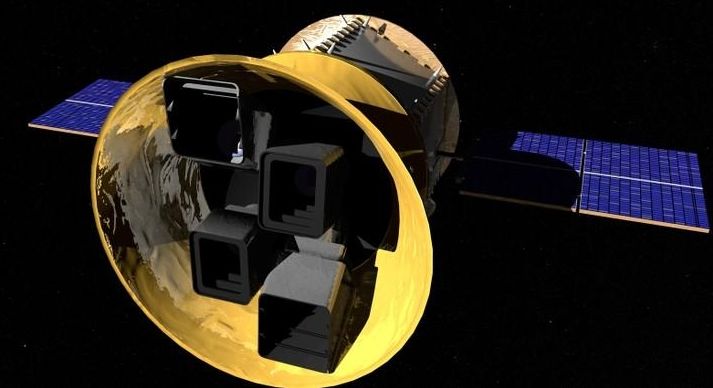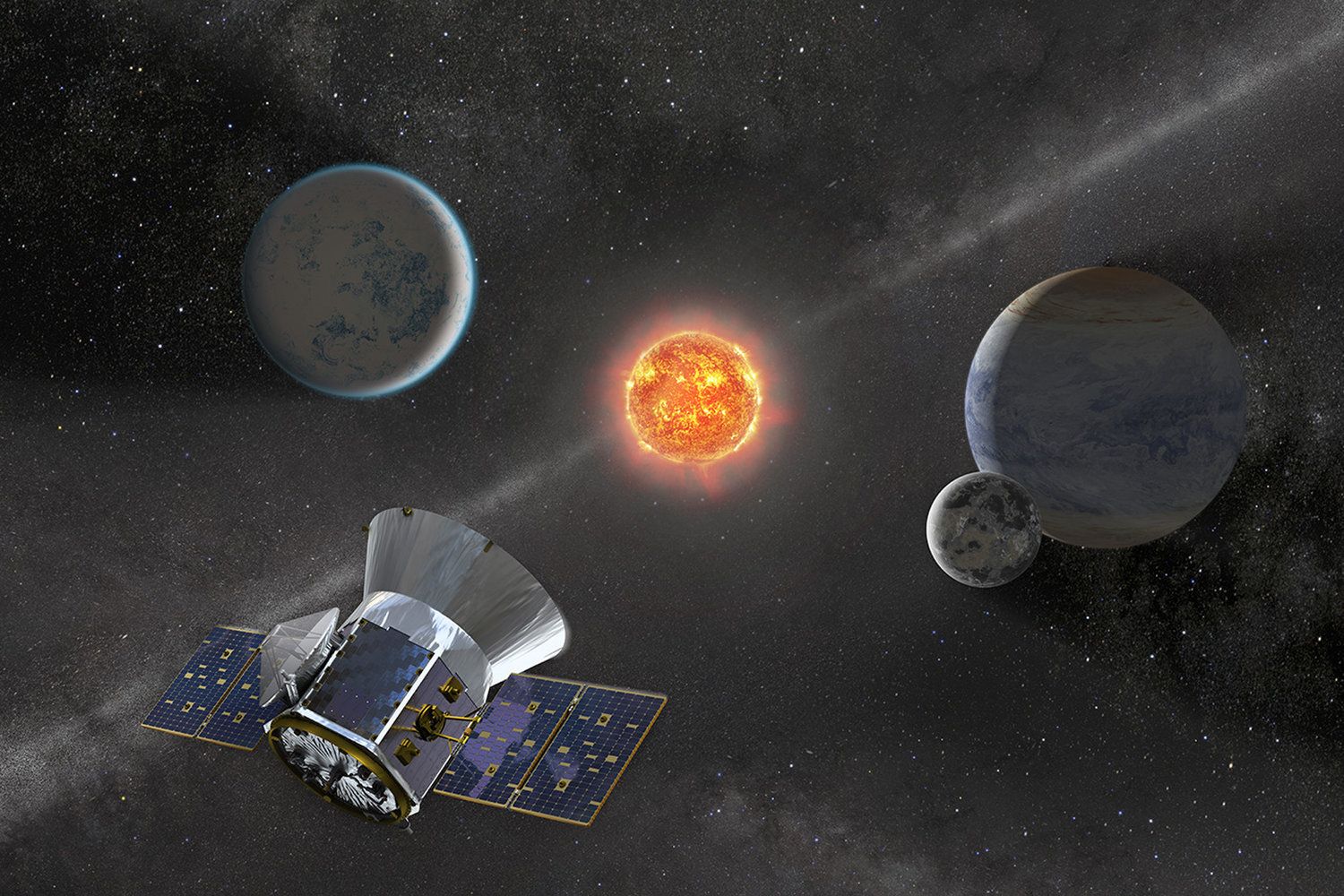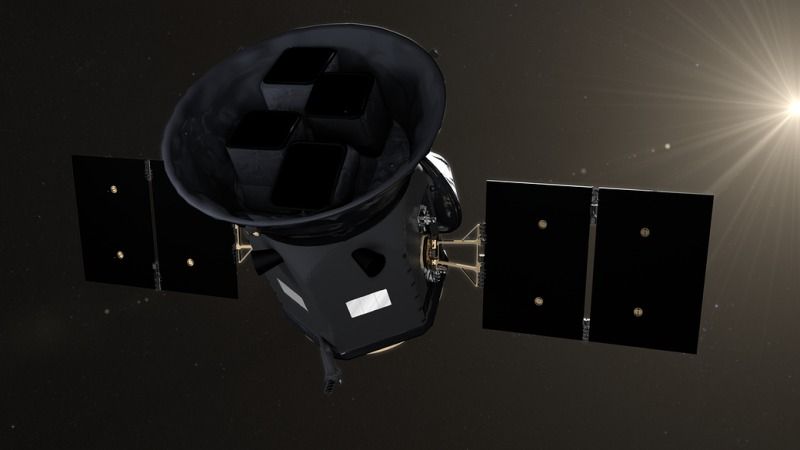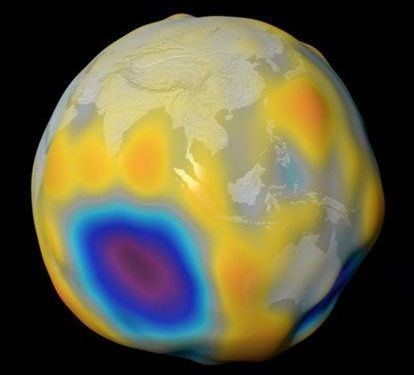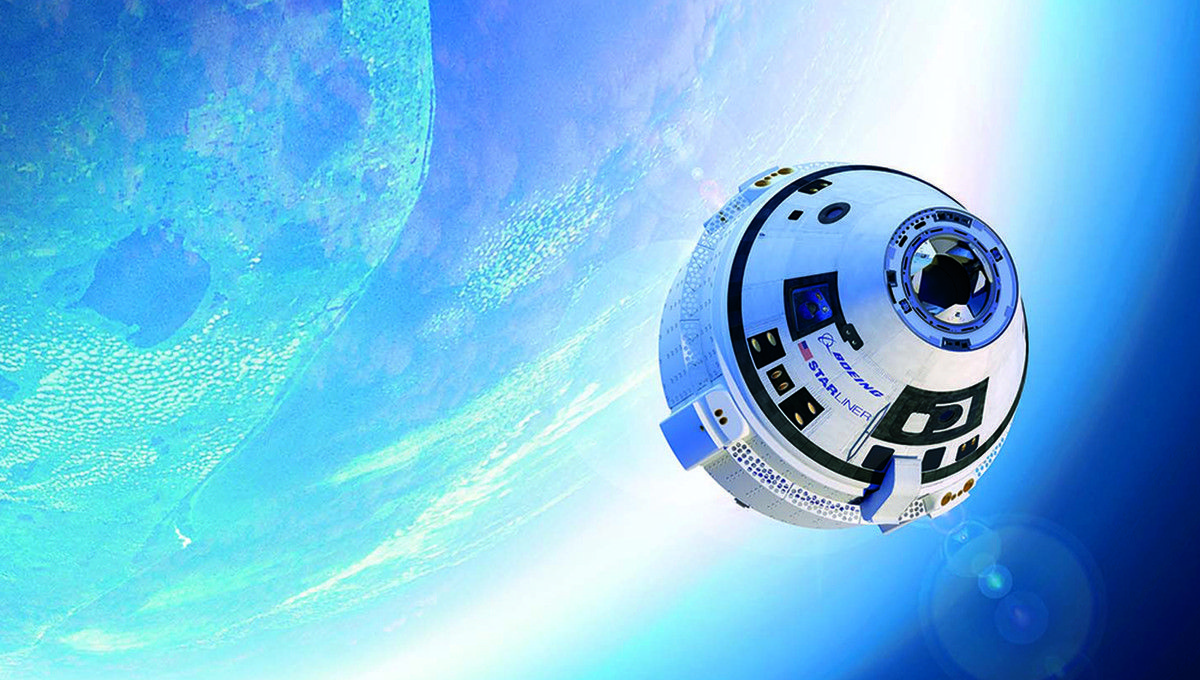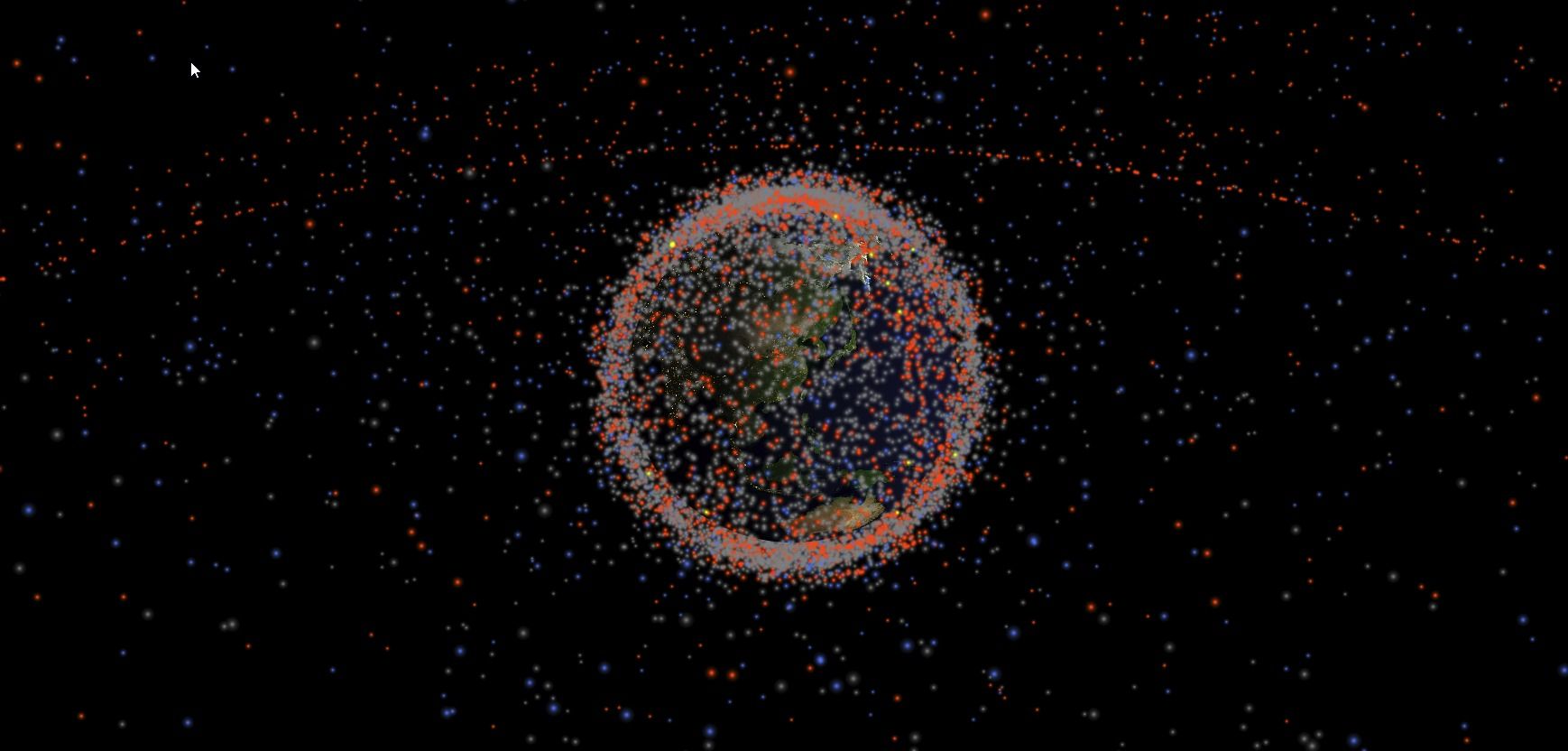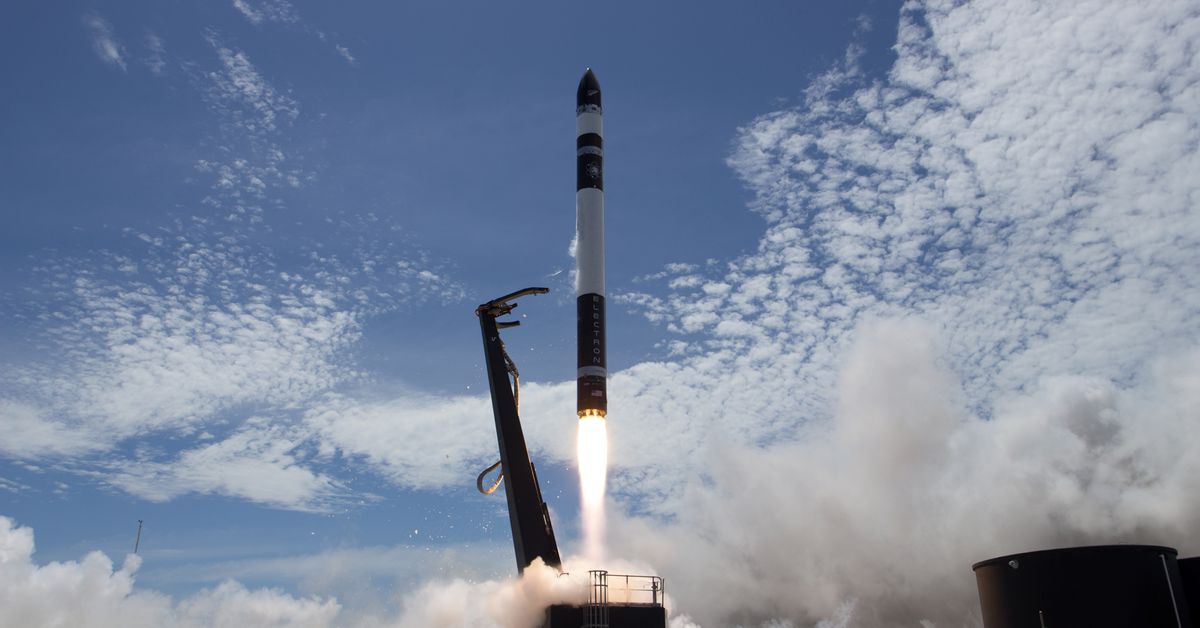Archive for the ‘satellites’ category: Page 167
Apr 19, 2018
The US Military Will Award $10 million to the Company That Can Launch Satellites on Short Notice
Posted by Dan Kummer in categories: military, satellites
I guess the anti satellite missiles and lasers are a real threat now.
The Air Force is desperate to replace larger satellites that are vulnerable to attack, and fast.
US military leaders are bullish about small satellites as tools to spy on adversaries and provide secure communications, but there’s just one problem: There isn’t a good way to get them into space, on demand.
Apr 18, 2018
In Florida, all systems go for SpaceX’s launch of space telescope
Posted by Genevieve Klien in category: satellites
CAPE CANAVERAL, Fla. (Reuters) — SpaceX said all systems and weather were “go” for blast-off on Wednesday of its first high-priority science mission for NASA, a planet-hunting space telescope whose launch was delayed for two days by a rocket-guidance glitch.
FILE PHOTO: NASA’s Transiting Exoplanet Survey Satellite, scheduled to launch from Cape Canaveral Air Force Station in Florida, U.S., is shown in this artist’s rendering image obtained on April 9, 2018. Courtesy Chris Meaney/Goddard Space Flight Center/NASA/Handout via REUTERS.
Apr 16, 2018
NASA’s TESS Satellite Will Supercharge Search for Nearby, Earth-Like Worlds
Posted by Genevieve Klien in categories: alien life, satellites
On Monday, April 16, the Transiting Exoplanet Survey Satellite (TESS) will launch from Cape Canaveral Air Force Station in Florida. NASA’s new exoplanet hunter will train its sights on nearer, brighter stars than its predecessors did. If TESS lives up to scientists’ predictions, it could energize our search for life in the cosmos.
When the Kepler space telescope launched in 2009, scientists didn’t know what fraction of stars hosted planets. The Kepler mission was a statistical exploration looking to see how frequently planets occur around stars, Harvard astronomer David Latham told Space.com. “One of the big surprises from Kepler was to find this whole population of planets with sizes between that of Neptune and Earth — and there aren’t any in our solar system, zero — and they’re everywhere out there,” said Latham, who’s worked on the Kepler project for nearly 20 years.
“Kepler is what made us become aware that planets are as common as telephone poles,” SETI Institute astronomer Seth Shostak told Space.com.” But the stars that Kepler was staring at for four years … they were all somewhere between 500 and 1,500 light-years away.” TESS will survey the local neighborhood for planets like Earth. [NASA’s TESS Exoplanet-Hunter in Pictures].
Continue reading “NASA’s TESS Satellite Will Supercharge Search for Nearby, Earth-Like Worlds” »
Apr 14, 2018
NASA’s New Planet-Hunting Satellite Is Ready to Launch on Monday
Posted by Michael Lance in category: satellites
Apr 11, 2018
Environmental Group Plans Methane-Tracking Satellite
Posted by Genevieve Klien in category: satellites
Tracking methane in the air is hard because it rises and spreads from the source. Measurements taken on the ground and from planes vary all over the place.
Hamburg says the satellite, called MethaneSAT, is the best thing yet for quantifying and tracking the gas: “It will be able to see where it’s happening [and] how much, across the globe — not just the big sources, but all the sources collectively, and understand the scale of the problem. That’s the kind of data we don’t have anywhere in the world.”
The satellite will be about the size of a beer keg and is due for launch in three years. It’s funded with money raised from wealthy philanthropists.
Continue reading “Environmental Group Plans Methane-Tracking Satellite” »
Apr 10, 2018
The ESA Just Discovered a Second Magnetic Field Surrounding Our Planet
Posted by Genevieve Klien in categories: mapping, satellites, sustainability
A trio of satellites studying our planet’s magnetic field have shown details of the steady swell of a magnetic field produced by the ocean’s tides.
Four years of data collected by the European Space Agency’s (ESA) Swarm mission have contributed to the mapping of this ‘other’ magnetic field, one that could help us build better models around global warming.
Physicist Nils Olsen from the Technical University of Denmark presented the surprising results at this year’s European Geosciences Union meeting in Vienna, explaining how his team of researchers managed to detail such a faint signature.
Continue reading “The ESA Just Discovered a Second Magnetic Field Surrounding Our Planet” »
Apr 10, 2018
Humans are going to infinity and beyond (or at least the moon) with Boeing’s Starliner
Posted by Genevieve Klien in categories: existential risks, robotics/AI, satellites
NASA wants to go to Mars. SpaceX wants to go to Mars. Michio Kaku wants humanity to go to Mars so we can avoid extinction. The rest of us just want to see our species actually set foot on Mars. But first, the moon.
Think of the moon as a launchpad for the Red Planet. As LiveScience found out, Boeing’s Crew Space Transportation (CST)-100 Starliner is going to take advantage of our satellite as a blast-off point for the next frontier. Starliner (the name is about as sci-fi as you can get) is what happens when Boeing, which probably makes everyone think airplanes not spaceships, joins forces with NASA to develop a reusable space capsule that will be able to fly up to seven astronauts to the ISS. It will also be the world’s first commercial space vehicle.
Starliner is even autonomous. Meaning crews will spend less time on training and take off sooner. It only needs one astronaut to fly it, or more like assist it in flight, using tablets and touch screens.
Apr 10, 2018
This is the COOLEST! Everything that’s Orbiting the Earth Right Now
Posted by Genevieve Klien in categories: computing, engineering, satellites
Okay, if you’ve got some spare time, check out this amazing website called Stuff in Space. It’s a simulation of every satellite (alive or dead), space station, and large piece of space junk orbiting the Earth right now.
You can zoom in and out, rotate the Earth and its satellites around. Pick any one object and discover more information about it. Or just leave it running and watch all the objects buzz around in real time. Humans have been busy launching a lot of stuff, and it’s only going to increase.
The simulation was made by James Yoder, an incoming Electrical and Computer Engineering freshman at the University of Texas at Austin, and it’s based on data supplied by Space Track, which is a service of the Joint Space Operations Center. They have a bunch of handy data feeds and APIs that you can use track orbital objects, but I’ve never seen anything as creative as this.
Continue reading “This is the COOLEST! Everything that’s Orbiting the Earth Right Now” »
Apr 4, 2018
Rocket Lab sets date for first commercial launch of its Electron rocket
Posted by Genevieve Klien in category: satellites
US spaceflight startup Rocket Lab is officially open for business and has scheduled its very first commercial launch for later this month. The company will launch its small Electron rocket with payloads from two paying satellite operators on board — just three months after completing a second test flight of the vehicle. The upcoming mission will initiate the beginning of customer operations for Rocket Lab, which claims to have a busy manifest for this year and next.
After four years of developing the Electron, Rocket Lab flew the vehicle for the first time in May 2017 out of the company’s own private launch site in New Zealand. That test flight — appropriately dubbed “It’s a Test” — made it to space, though the rocket didn’t achieve orbit, due to a glitch in communication equipment on the ground. Rocket Lab was able to fix the problem, though, and performed a second test flight of the Electron in January in a mission called “Still Testing.” That time, the vehicle did make it to orbit and even deployed four satellites, including a secret disco ball probe made by Rocket Lab’s CEO Peter Beck.


